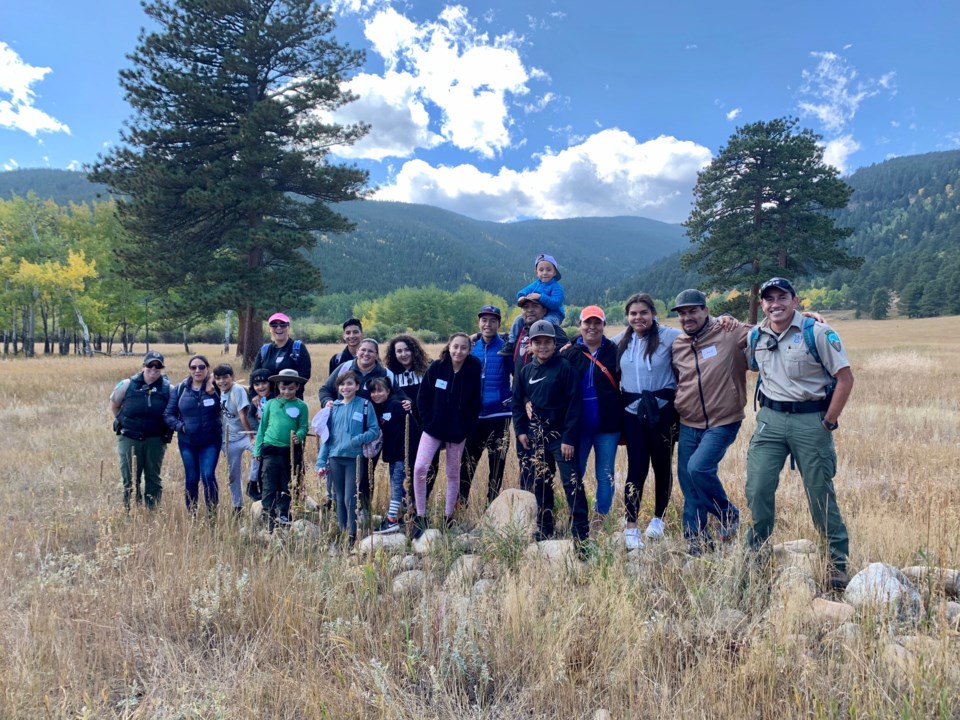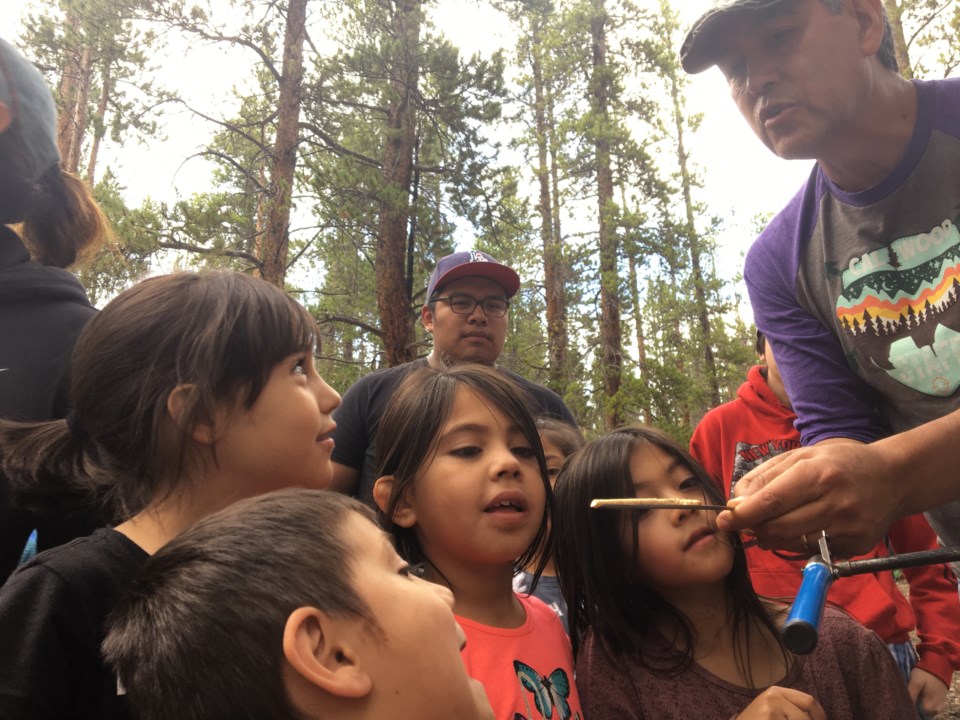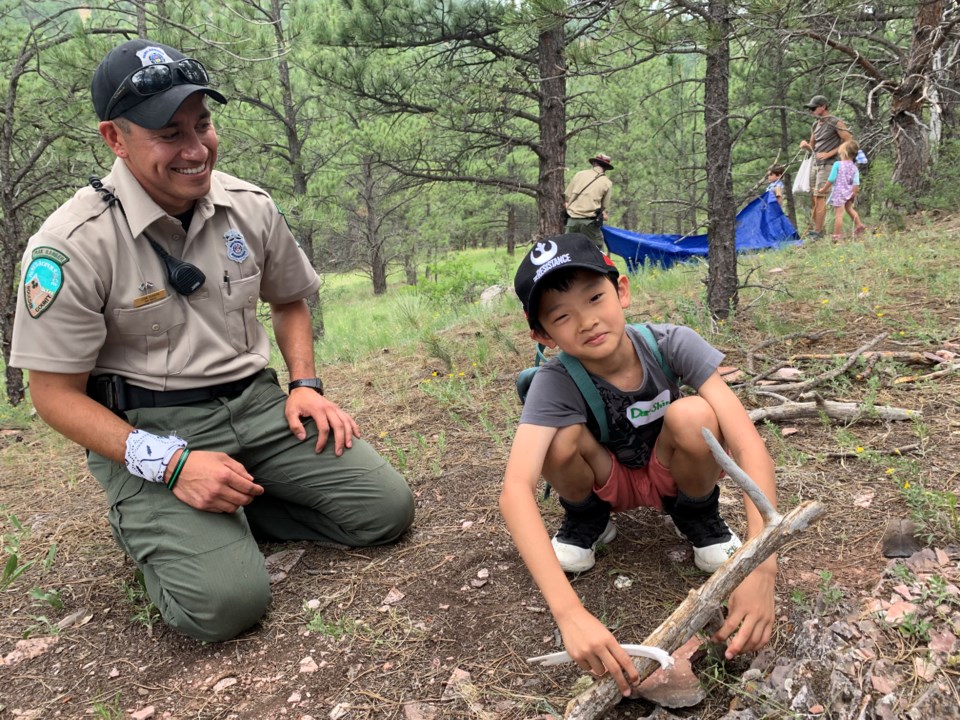Boulder County Parks and Open Space is undergoing a process to become more culturally inclusive, focusing specifically on effectively reaching and welcoming the Latinx community.
“We are looking at all aspects, including signaling, rangers, park maintenance, facilities,” said Bevin Carithers, ranger supervisor “We are looking at how to be more inclusive in the work that we do, more responsive to the Latinx community, and providing language access.”
One of the key steps in its effort to make a mountain corner of the county a welcoming space for Latinx community members is hiring Juan Ocampo as a bilingual resident ranger at Betasso Preserve.
With more than 100 acres of trails and parks open to the public, large areas conserved for wildlife and over 30 acres leased to local farmers for agricultural purposes, Boulder County’s is one of the largest parks and open space departments in the country, according to Carithers.
Erin Hartnett, parks and open space ranger public information officer, said, “We have 10 full-time rangers and five park deputies assigned to the parks who are out there every day, seven days a week, patrolling, answering questions, responding to emergencies and addressing violations, all to ensure visitors have a safe and fun experience.”
Ocampo is among the latest additions to this team, she said.
Ocampo is a California native whose parents migrated to the U.S. from Guerrero, Mexico, as young adults. Having grown up in a bilingual household with a heavy influence of Mexican culture and traditions, he said he appreciates the need for language access and cultural representation.
 Boulder County Parks and Open Space rangers Sarah Andrews , far left, and Juan Ocampo , far right, with a group of families from the San Lazaro mobile home community at Caribou Ranch in summer 2019. Courtesy photo
Boulder County Parks and Open Space rangers Sarah Andrews , far left, and Juan Ocampo , far right, with a group of families from the San Lazaro mobile home community at Caribou Ranch in summer 2019. Courtesy photoBeing a ranger was always a dream, Ocampo said, and he has spent the past few years preparing for the role.
Ocampo has held positions as an environmental science educator in Yosemite National Park as well as a seasonal ranger in Boulder County. In addition to his work as an open space ranger, he works with other organizations, including the Calwood Education Center, a nonprofit organization that provides outdoor educational opportunities.
Rafael Salgado Zavala, executive director of Calwood, said he and Ocampo for the past three years have been partnering to more effectively engage the Latinx community. Their work has included creating brochures and educational materials with the basics about the mountains, natural resources and recreational activities.
“In Mexico, we don’t have public lands, that concept does not exist. Here, over 50% of the Rockies is public land. We want to teach (Latinx) families what this means so they can know where to go, how to get there and take advantage of these spaces,” Salgado Zavala said. “They need some help getting to the parks to feel more comfortable there, but they want to do it, they want to be out there.”
A Mexican immigrant from a small town in Michoacan who has been living in the county for 20 years, Salgado Zavala said he can relate to the experiences many immigrant families and individuals have trying to get to engage with the outdoors. He said he has been working alongside other professionals in the field to improve access and increase awareness.
“Something I am doing, and Juan is also trying to do, is look at the barriers (keeping Latinos out) and think about how we can address the barriers. There are a lot of good things happening but with diversity, we need to work more intentionally,” he said. “If we want kids to have more experiences in the outdoors, we need to engage families more.”
Lack of diversity in the natural resources field is an important barrier to be addressed to develop lasting community partnerships and create equitable results for people of color and members of minority communities, Salgado Zavala said.
“This county has a lot of environmental education programs and nonprofits reaching out to the community. A lot of money is spent on these programs but it is not producing professional Latinos on a bigger scale for this field,” he said. “We are a small organization compared to the need out there, and we definitely have increased programming for Latinos but other minority groups, refugee families, Black families, and Native American, and every single kid, they all need these experiences.”
 Rafael Salgado Zavala, executive director of Calwood Education Center, with a group of families and children visiting from Leadville in summer 2019. Courtesy photo
Rafael Salgado Zavala, executive director of Calwood Education Center, with a group of families and children visiting from Leadville in summer 2019. Courtesy photo“Having someone up here doing this kind of outreach (for Latinx families) to come up to the mountains, shows how accessible it can be,” he said. “Two weeks ago, I had an informal group of fifth graders come up to the park with a teacher, all Latinx children. They had never been here. We had a lot of fun with a small and intimate group, had everything planned for, spent time answering their questions, showing them what I love. Now they’re going back to parents to let them know they came and met a ranger who is bilingual. I think that will have a huge impact to motivate the parents to come.”
Carithers said this is just the beginning of the work to make parks and open spaces more accessible.
“We want to eventually have someone bilingual in the Longmont and Lafayette areas, but I think it is also important that no matter where a person of color or Latinx people go, they can see themselves,” he said. “Having someone like Juan in the mountains furthers the idea for these children of being able to one day become a ranger in the mountains.”
The department also plans to have most informational brochures and welcome signs translated and available in Spanish later this year, Carithers said, adding the department is working with a third-party consultant on an assessment that will inform possible next steps.
For more information on parks and open space, click here.


